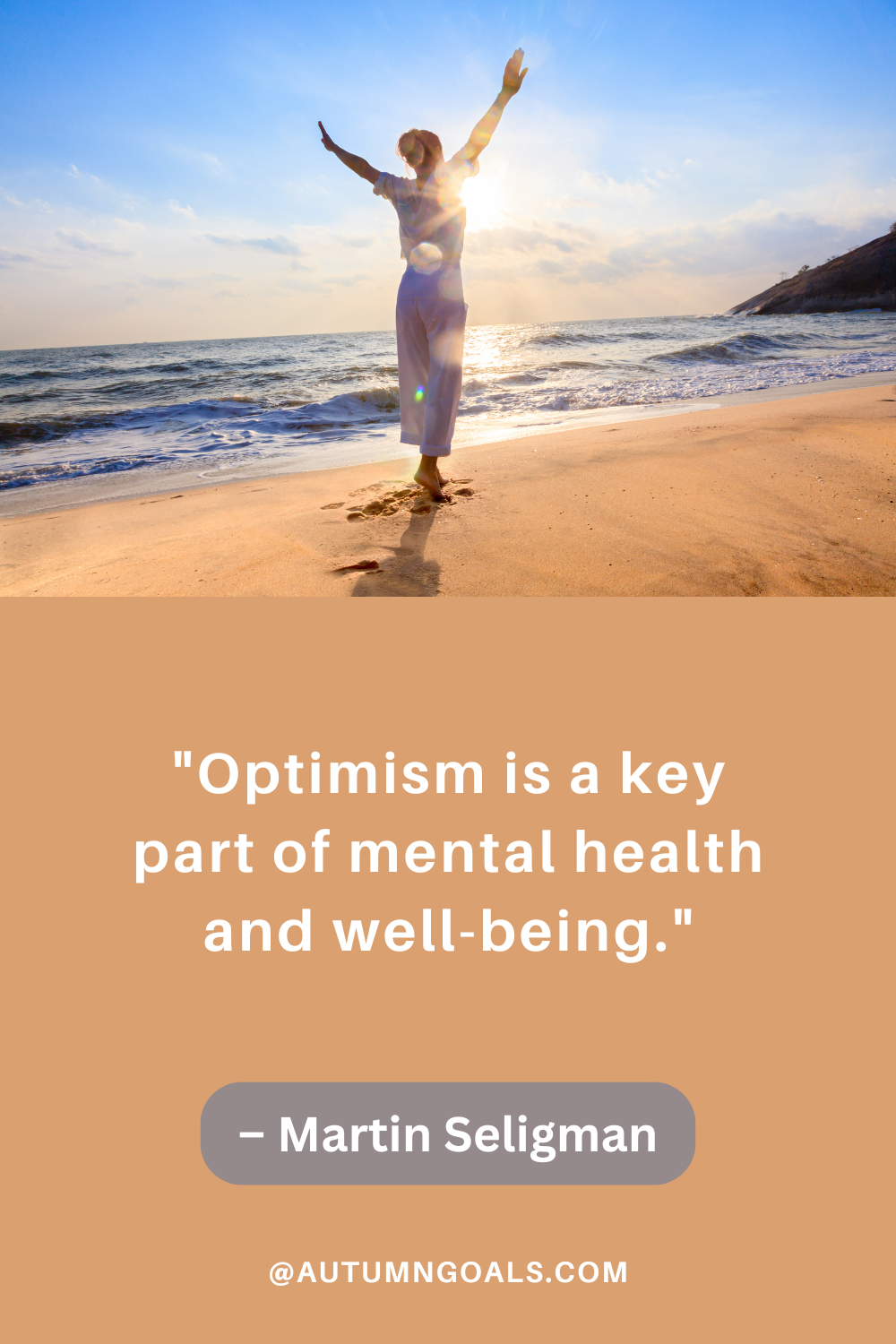Developing a Positive Mindset: Unlocking the Power of Optimism
August 3, 2024 | by autumngoals.com

Positive Mindset Photo by Allef Vinicius on Unsplash
In a world filled with constant challenges and uncertainties, developing a positive mindset can be a game-changer. It’s the secret ingredient that transforms obstacles into opportunities, setbacks into setups for success, and dreams into reality. A positive mindset isn’t about ignoring life’s difficulties; it’s about facing them with resilience and hope.
This blog will delve into the power of positivity, offering insights on how to cultivate a positive mindset and highlighting the profound impact optimism can have on your well-being.
Understanding a Positive Mindset
A positive mindset is a mental and emotional attitude that focuses on the bright side of life and anticipates happiness, health, and success. It’s about maintaining a constructive outlook despite challenges and believing in your abilities to overcome obstacles.
The Science Behind Positivity
Research has shown that a positive mindset can lead to numerous benefits, including better health, higher levels of happiness, and increased resilience. Dr. Barbara Fredrickson, a leading researcher in positive psychology, emphasizes the “broaden-and-build” theory, which suggests that positive emotions broaden our awareness and encourage novel, varied, and exploratory thoughts and actions. Over time, this builds our personal resources, enhancing our ability to cope with life’s challenges.
Key Components of a Positive Mindset
- Gratitude: Recognizing and appreciating the good in your life.
- Optimism: Expecting positive outcomes and believing in your ability to achieve them.
- Resilience: Bouncing back from adversity stronger and more determined.
- Mindfulness: Staying present and fully engaging with the current moment.
Cultivating Optimism
Optimism is the basis of a positive mindset. It’s the lens through which we view the world, influencing our reactions to events and shaping our overall outlook on life.
Practical Tips for Developing Optimism
- Reframe Negative Thoughts: Transform negative thoughts into positive ones. For example, instead of thinking, “I can’t do this,” replace it with, “I will give it my best shot.”
- Surround Yourself with Positivity: Spend time with positive people who uplift and inspire you.
- Practice Gratitude: Regularly reflect on what you’re thankful for. This can shift your focus from what’s wrong to what’s right in your life.
- Visualize Success: Imagine achieving your goals and the positive emotions associated with success.
- Self-Affirmations: Use positive affirmations to boost your confidence and self-worth.
How Optimism Impacts Well-Being
Optimism is not just a feel-good concept; it has tangible effects on well-being. Studies have shown that optimistic individuals are healthier, more successful, and live longer. Optimism reduces stress, improves coping mechanisms, and leads to healthier lifestyle choices.
Building Resilience Through Positivity
Resilience is the ability to recover from setbacks and keep moving forward. A positive mindset plays a crucial role in building resilience, allowing you to face challenges head-on and bounce back stronger.
Strategies to Enhance Resilience
- Develop a Support System: Surround yourself with supportive friends and family who can provide encouragement and assistance during tough times.
- Maintain a Healthy Lifestyle: Regular exercise, a balanced diet, and sufficient sleep are essential for physical and mental resilience.
- Set Realistic Goals: Break down larger goals into manageable steps to avoid feeling overwhelmed.
- Embrace Change: Accept that change is a part of life and view it as an opportunity for growth.
How Optimism Boosts Resilience
Optimism fuels resilience by fostering a proactive approach to problem-solving and reducing the perception of threats. When you expect positive outcomes, you’re more likely to take constructive actions to achieve them. As Norman Vincent Peale, author of “The Power of Positive Thinking,” stated, “Change your thoughts and you change your world.”

Enhancing Mental Health with a Positive Mindset
Mental health is integral to overall well-being, and a positive mindset can significantly improve mental health outcomes. Positive thinking reduces stress, anxiety, and depression, creating a more balanced and fulfilling life.
Techniques for Improving Mental Health
- Mindfulness Meditation: Practice mindfulness to stay grounded and reduce stress.
- Positive Journaling: Write about positive experiences and reflect on the good things in your life.
- Limit Negative Inputs: Reduce exposure to negative news and social media that can heighten stress and anxiety.
- Seek Professional Help: If needed, don’t hesitate to reach out to a mental health professional for guidance and support.
The Impact of Optimism on Mental Health
Optimism acts as a buffer against mental health issues. Optimistic people are less likely to experience depression and anxiety because they focus on solutions rather than problems. Renowned psychologist Martin Seligman, known as the father of positive psychology, explains, “Optimism is a key part of mental health and well-being.”

Fostering Positive Relationships
Positive relationships are vital for a fulfilling life. A positive mindset enhances your ability to connect with others, build strong relationships, and foster a supportive social network.
Tips for Building Positive Relationships
- Communicate Effectively: Practice active listening and express yourself clearly.
- Show Empathy: Understand and share the feelings of others.
- Offer Support: Be there for others in times of need, offering a helping hand or a listening ear.
- Celebrate Successes: Acknowledge and celebrate the achievements of those around you.
How Optimism Enriches Relationships
Optimistic individuals are more likely to build and maintain positive relationships. Their hopeful outlook and positive energy attract others, creating a supportive and uplifting social environment. As John Maxwell, a leadership expert, says, “People may hear your words, but they feel your attitude.”

Achieving Personal and Professional Growth
A positive mindset is a catalyst for personal and professional growth. It drives you to set higher goals, take calculated risks, and persist in the face of challenges.
Strategies for Growth
- Set Clear Goals: Define what you want to achieve and create a plan to reach your goals.
- Embrace Lifelong Learning: Continuously seek knowledge and skills to improve yourself.
- Take Initiative: Be proactive in seeking opportunities and taking on new challenges.
- Reflect and Adapt: Regularly assess your progress and be willing to adjust your strategies as needed.
The Role of Optimism in Growth
Optimism fuels ambition and perseverance. When you believe in positive outcomes, you’re more likely to take actions that lead to success. As motivational speaker Zig Ziglar famously said, “Positive thinking will let you do everything better than negative thinking will.”

Developing a positive mindset drives you forward
Developing a positive mindset equips you with the resilience to face challenges, the optimism to pursue your dreams, and the mental strength to maintain well-being. Embrace positivity, and watch as it transforms your life, enriching your relationships, boosting your mental health, and driving your personal and professional growth.
As we journey through life, let us remember the words of Winston Churchill: “A pessimist sees the difficulty in every opportunity; an optimist sees the opportunity in every difficulty.” By cultivating a positive mindset, we can unlock the power of optimism and create a brighter, more fulfilling future.

RELATED POSTS
View all



